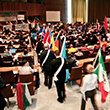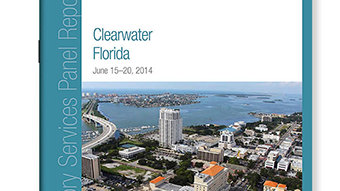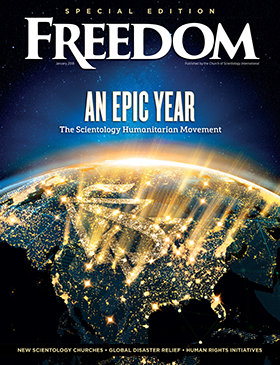
An oft-repeated truism is that technology is accelerating. No doubt.
For millennia, men killed each other with clubs, spears and swords. Then for a few hundred years, they blasted at one another with cannons and guns. When World War II began, early battles involved horse cavalry and flimsy biplanes. The conflict ended when scientists split the atom and obliterated two cities. Many feared—and many still fear—the accelerating technology of death may end the cosmic experiment of life on this planet. That’s called progress.
Equally dramatic, although not so obviously lethal, were the techno advances involved in the manipulation of ones and zeroes. The earliest computers date from the 1830s and the “difference machine” of Englishman Charles Babbage. Another Brit, Alan Turing (made a household name in the 2014 film The Imitation Game) cracked the Nazis’ Enigma codes and ushered in the modern digital age of computers. It then took four decades after World War II for computers to shrink from warehouse-size collections of vacuum tubes to, well, those immensely more powerful gadgets called tablets and cell phones.
Sad that Turing, Babbage and their contemporaries never saw an iPhone. (Would they have rejoiced or burned their plans?)
Conflated with the history of computers was an equally accelerating technology, the Internet. Who wrote this: “The improved ‘limitless-distance’ telephone was presently introduced, and the daily doings of the globe made visible to everybody, and audibly discussible, too, by witnesses separated by any number of leagues.”
A young Steve Jobs or Bill Gates? Nope, it was Mark Twain, in a bit of science fiction he penned in 1904. Note that not only does he nail the Internet, but he also prophesies social media.
There were many other sci-fi writers—Douglas Adams, William Gibson, Isaac Asimov, John Brunner—who foresaw a global, easily accessible network of information. Although the Internet is so utterly ubiquitous today, it was only a little more than two decades ago that we watched our first World Wide Web pages crawl across a monitor in painful slowness. True, the U.S. military had been tinkering with ARPANET since the 1960s, but it was the civilian “web,” with graphics, hyperlinks, streaming and so, so very much more that turned civilization on its head.
Science has truly been transformative. The Internet is so essential, life without it would be like losing one of your senses. The next frontier is likely to include a direct interface between the net and your mind, and forget those archaic relics called computers and cell phones.
So, let’s shift gears, or paradigms, and talk about justice. If all people need commonly available commodities to function in society—water, electricity, phones—there has developed a social contract in most of the industrialized world that mandates fair, accessible, regulated service. Picture, if you will, the electric company charging such high rates that only the very wealthy could light up their homes, while the teeming masses would only get a few volts.
Outrageous, you say. How could society function if most people couldn’t afford those teensy electrons powering TVs and toasters?
That’s essentially the argument in the cover article of this issue of Freedom. The topic is “Net Neutrality.” It’s one of those terms that crest on the tsunami of accelerating technology. Quite likely, by the time we completely understand it, the next techno tidal wave will have rendered it obsolete.
But for now, Net Neutrality is a hot-button item. On one side, people and companies that have invested gazillions in building the Internet and its delivery technology are clamoring to recoup their ante by charging premiums for some information and for the speed at which it is transmitted. Facing off against them, many groups—across the political spectrum—demand an egalitarian Internet.
Journalist Price Colman untangles the conundrum about Net Neutrality in his story “A Tangled Web.” Although the Federal Communications Commission this year ruled in favor of Net Neutrality, it’s a battle that will continue. It’s a fascinating smackdown of ideas, not just legalities, and paramount is the concept of justice. Is it justice to deprive AT&T, Verizon and other tech giants of profits to recoup their billions invested in research and development? Is it justice for all people to have equal access to a robust, interactive Internet? Will people see what they want on the Internet, or will some company or group pay to ensure that their message is the most easily available? Whose rights should prevail? In all such discussions, the importance of freedoms as enshrined in the Constitution and Bill of Rights must be paramount.
In this issue of Freedom you will read other articles on justice: Baltimore. Senior Writer Ray Richmond, who in our October 2014 Freedom reported from the ground on the thorny issues in Ferguson, Missouri, adds another chapter on how America can, with justice, deal with race, poverty, violence and law enforcement. Also, Freedom’s Florida-based editor, John Sugg, drills down in on the press role in creating amnesia about civic strife.
Plus, Freedom profiles Baltimore’s “Mother Teresa” and listens to young people who are actively furthering human rights, with an impressive grasp of issues that belie their youth.
And finally, we visit the dedication of the new Ideal Church of Scientology in Basel, Switzerland, and take a look inside this first for that country.
A lot to enjoy and think about!
—The Editors





















